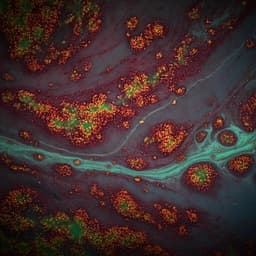
Medicine and Health
Antidepressants promote the spread of extracellular antibiotic resistance genes via transformation
J. Lu, P. Ding, et al.
This study by Ji Lu, Pengbo Ding, Yue Wang, and Jianhua Guo reveals that commonly prescribed antidepressants can significantly promote the spread of antibiotic resistance. With notable effects linked to increased reactive oxygen species and changes in cell membrane permeability, this research underscores the hidden risks associated with these medications.
~3 min • Beginner • English
Related Publications
Explore these studies to deepen your understanding of the subject.







